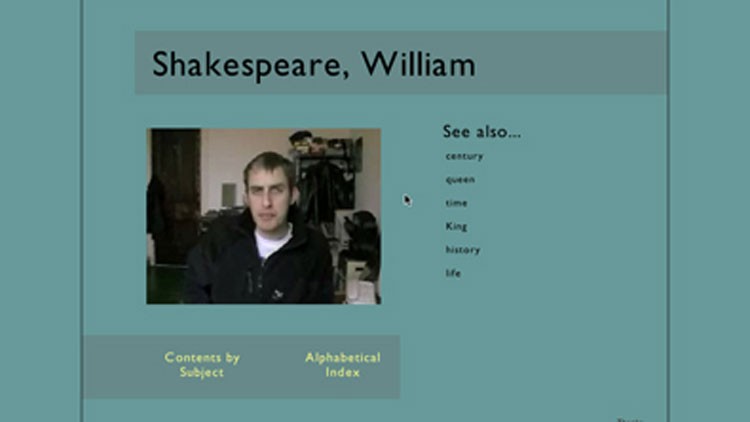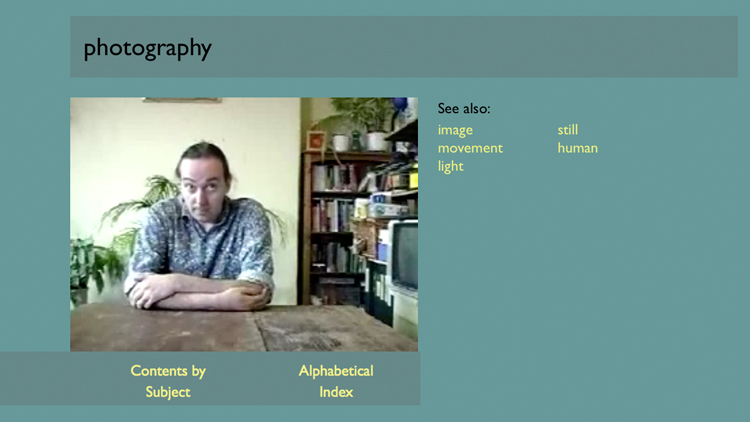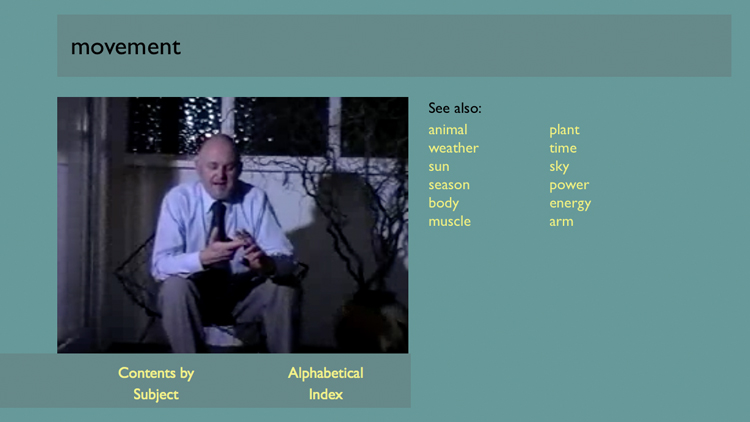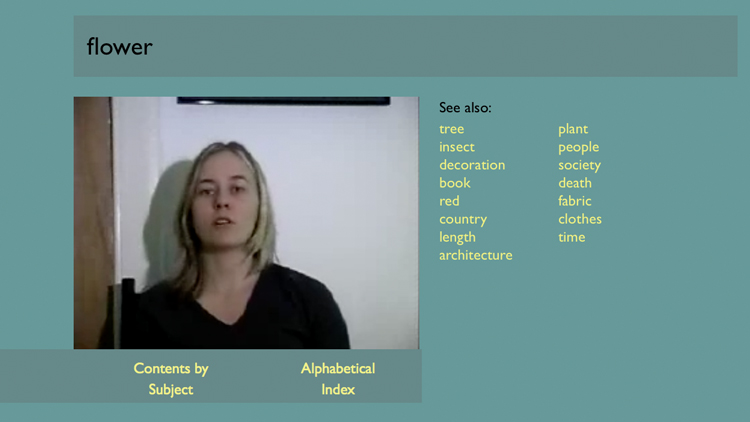Two years before Wikipedia re-defined the nature of the encyclopaedic work of reference, transforming it from a compendium of expert views into a repository of collective wisdom, Alan Currall produced this endearingly quixotic People’s Almanac, assembled from ordinary people’s individual contributions. The people in question are recruited from Currall’s immediate circle of family and friends, and the answers they give offer a disarmingly local, if palpably limited and partial, perspective on the attempted elucidation of a diverse range of subjects (aspidistra, air, Abyssinia etc). Persistently confronted by their doubts and failings, displaying a tendency to falter or digress, the participants’ definitions highlight the inherent absurdity of universalising schemes of classification, and undercut the overweening will-to-order that sustains the pursuit of systematic knowledge.
Released as a CD-Rom (a format as passé as a morocco-bound multi-volume edition of the Encyclopaedia Britannica), the piece’s homemade graphic style exhibits a deliberately earnest retro quality (that felt oddly antiquated even at the time). Commissioned in conjunction with Potteries Museum and Art Gallery in Stoke-on-Trent (Currall’s home town), Encyclopaedia draws on his roots in this now relatively unsung, and increasingly marginalised part of Middle England to project an engaging, inclusive sense of commonality, in which the so-called ‘common people’ demonstrate the virtues, and the limits, of what passes for common knowledge.





